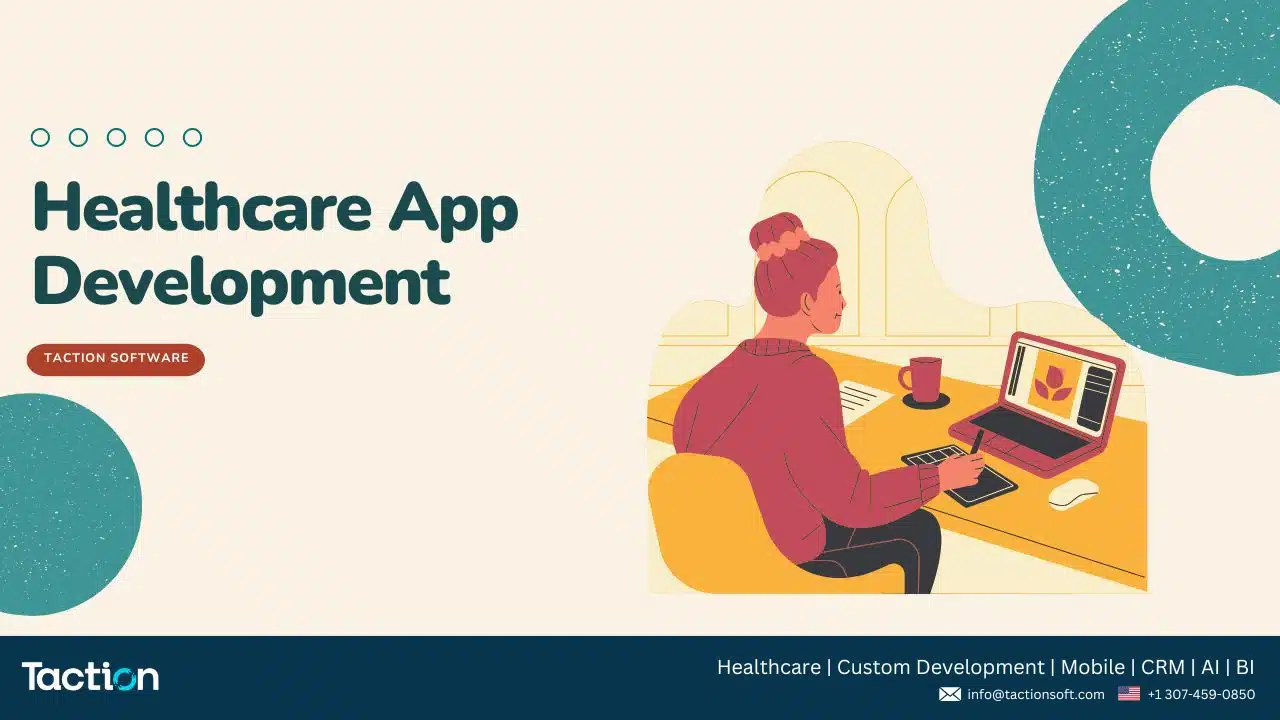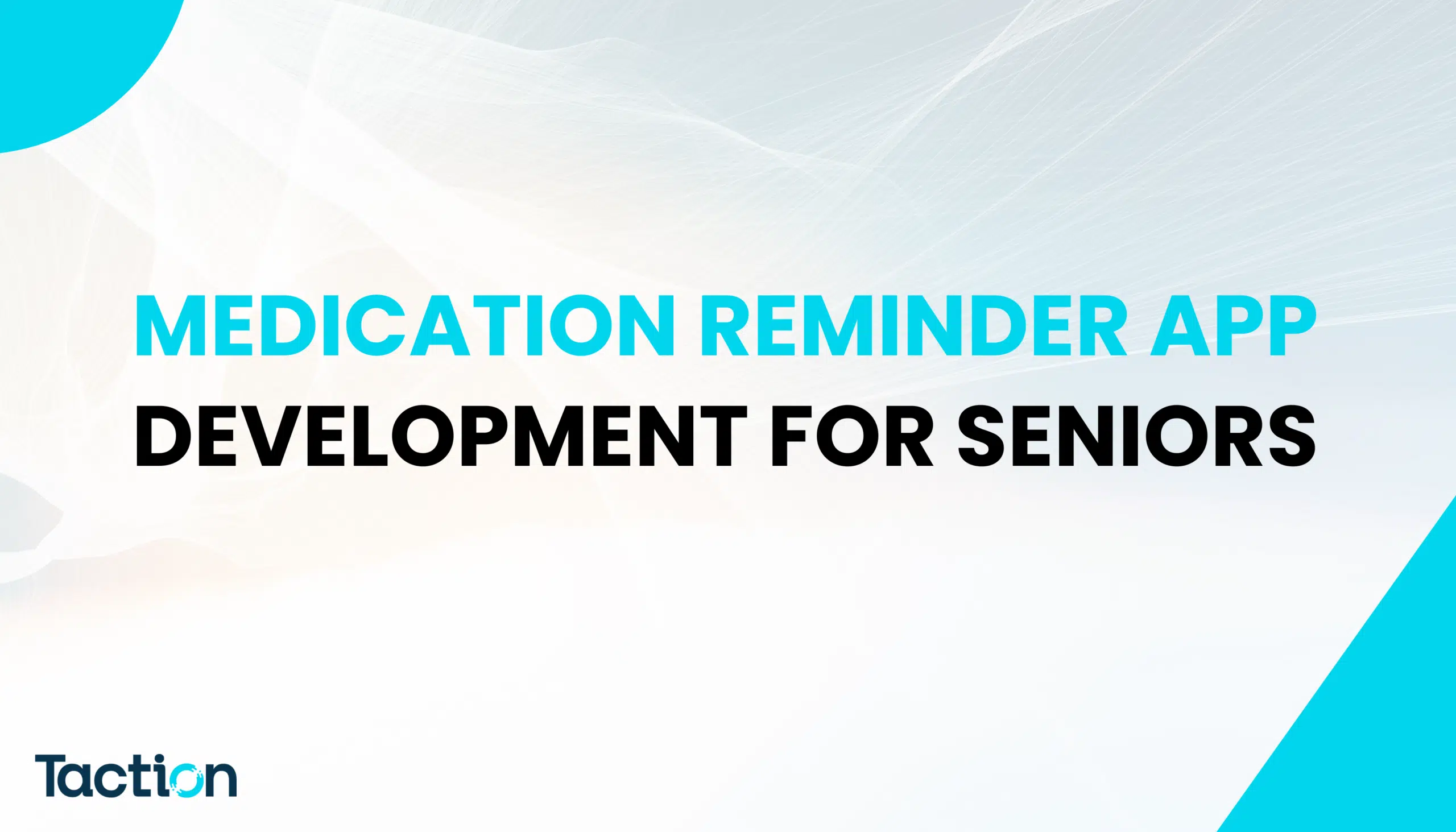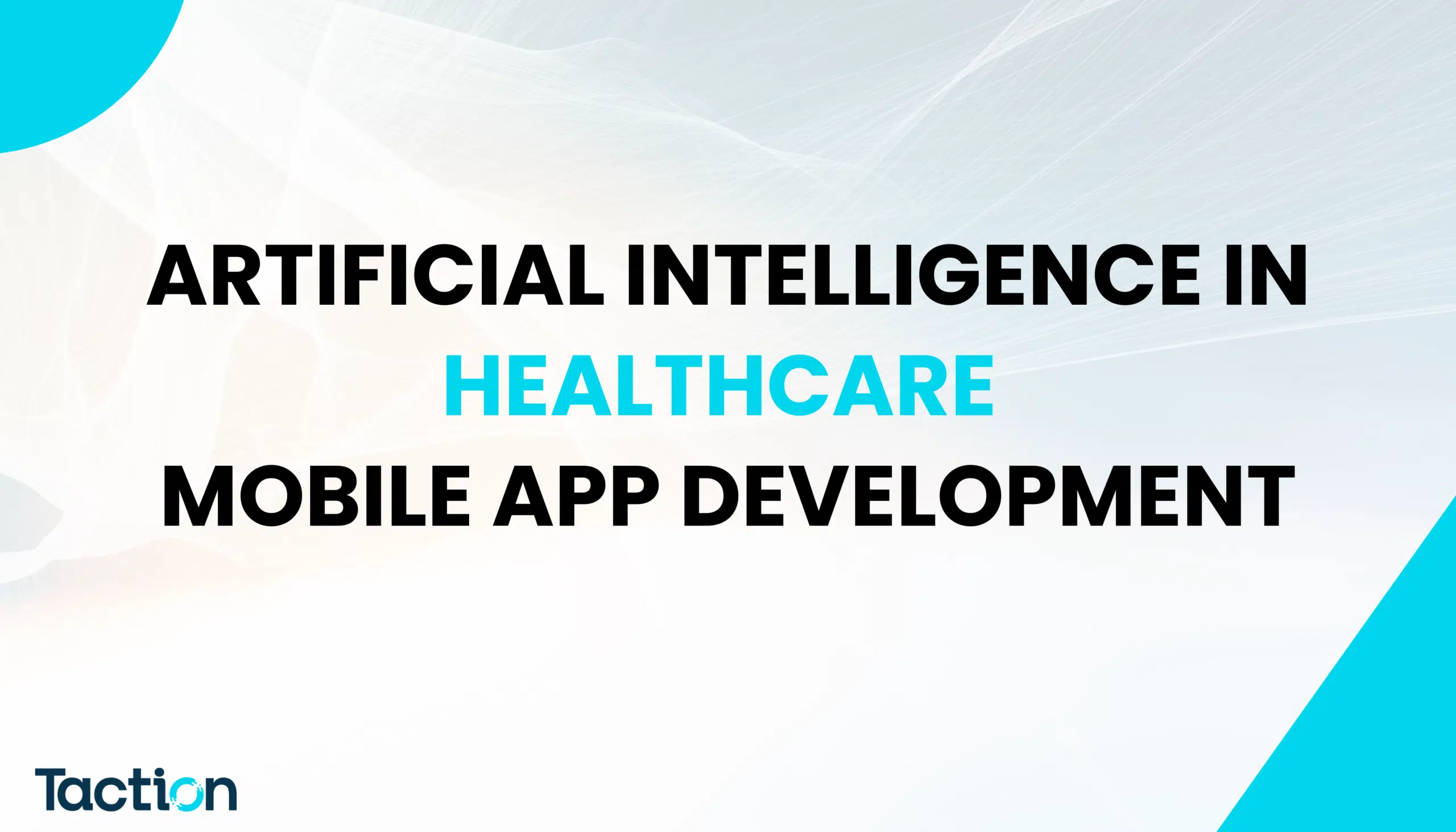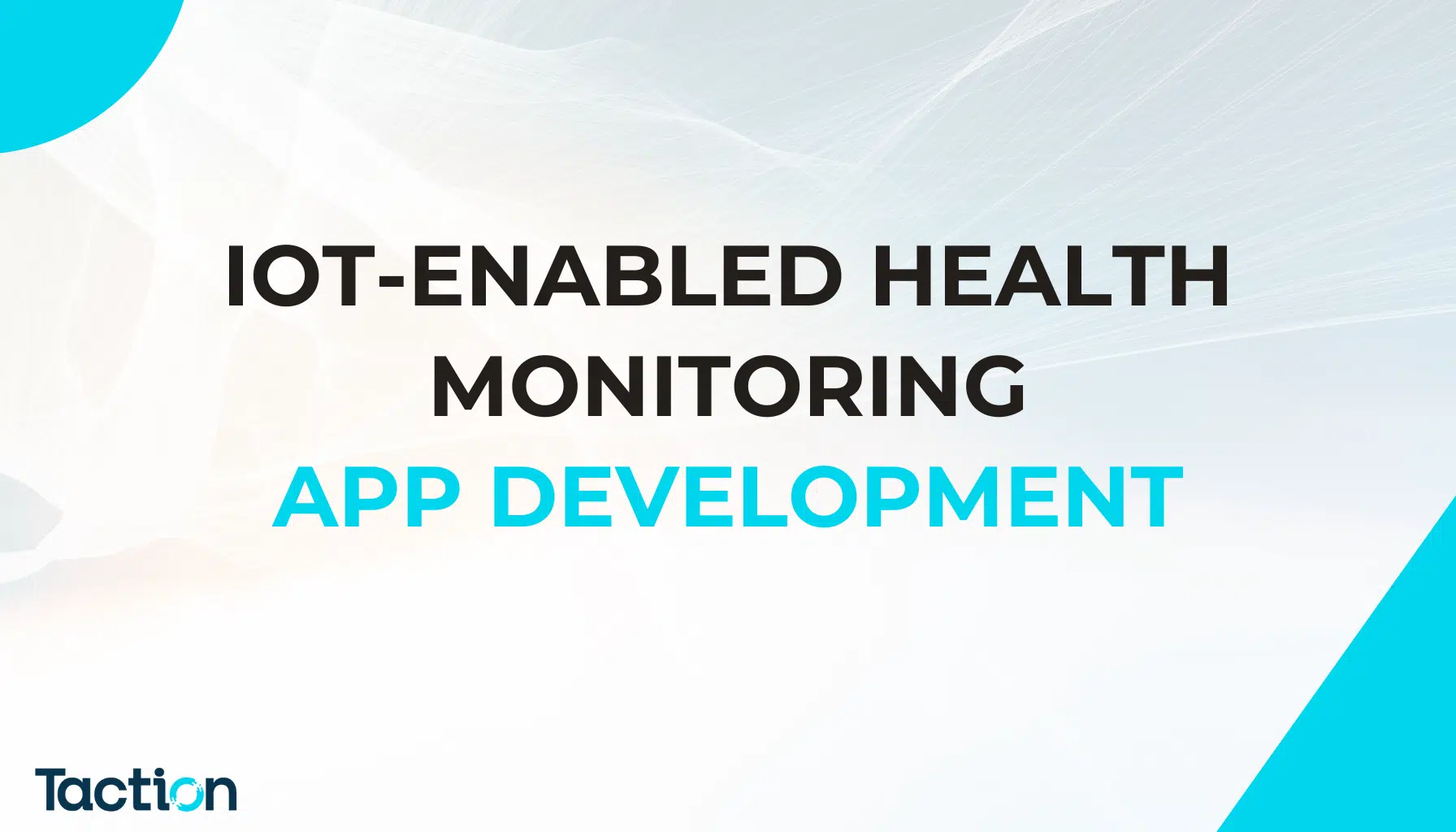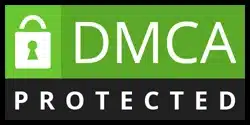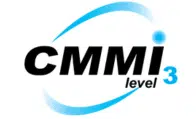Healthcare App Development
The healthcare industry is evolving rapidly, with technology playing a pivotal role in enhancing efficiency, accessibility, and quality of care. Among these advancements, healthcare app development has emerged as a transformative tool, offering innovative solutions to longstanding challenges. These applications bridge the gap between healthcare providers and patients, streamline administrative processes, and empower individuals to take control of their health.
The Importance of Healthcare App Development
Healthcare app development has moved beyond being a convenience; it has become a necessity. These apps cater to a wide range of needs, from chronic disease management to telehealth consultations, making healthcare more accessible and efficient.
Key Advantages of Healthcare Apps:
- Accessibility: Telemedicine and mobile health apps bring healthcare to remote areas, ensuring no one is left behind.
- Personalized Care: AI-powered apps offer tailored health insights and recommendations based on patient history.
- Cost Reduction: By reducing unnecessary visits and automating administrative tasks, healthcare apps save money for providers and patients alike.
- Real-Time Monitoring: Wearables and connected devices provide continuous health tracking, enabling early detection of issues.
- Patient Empowerment: Apps encourage users to engage actively in their health by providing easy access to information and tools.
Types of Healthcare Apps:
- Telemedicine Apps: Enable virtual consultations and follow-ups.
- Lifestyle and Wellness Apps: Focus on fitness, diet, and mental well-being.
- Chronic Disease Management: Assist in monitoring conditions like diabetes, hypertension, or asthma.
- Electronic Health Record (EHR) Integration: Provide secure access to patient records for both users and providers.
- Healthcare Provider Apps: Help professionals manage appointments, prescriptions, and patient communication.
Emerging Trends in Healthcare App Development
Healthcare app development is evolving at an unprecedented pace. Technological advancements and changing user expectations are driving innovation in this field.
1. Artificial Intelligence and Machine Learning
AI and ML have found a prominent place in healthcare apps. From predictive diagnostics to virtual health assistants, AI is enabling smarter, faster, and more accurate healthcare solutions.
- Example: Apps that analyze symptoms using AI to suggest potential conditions.
- Benefit: Reduced diagnostic errors and enhanced patient engagement.
2. Telemedicine Growth
The COVID-19 pandemic accelerated the adoption of telemedicine. Healthcare apps now integrate telehealth services, allowing patients to consult doctors, obtain prescriptions, and access care from the comfort of their homes.
- Example: Apps offering video consultations with licensed physicians.
- Benefit: Improved access to care for remote or immobile patients.
3. Integration with Wearables
Wearable technology such as fitness trackers and smartwatches sync with healthcare apps to monitor vital signs like heart rate, sleep patterns, and activity levels.
- Example: Apps analyzing data from devices like Fitbit or Apple Watch.
- Benefit: Early detection of abnormalities and continuous health tracking.
4. Blockchain for Data Security
With increasing concerns about data breaches, blockchain technology ensures the secure management of sensitive health information. It provides decentralized, tamper-proof records.
- Example: Blockchain-based apps for managing medical records.
- Benefit: Enhanced trust and compliance with privacy regulations like HIPAA.
5. Patient-Centered Design
Modern healthcare apps prioritize user experience (UX). Simple, intuitive interfaces and personalized content encourage greater user adoption.
Challenges in Healthcare App Development
Despite its potential, healthcare app development faces significant challenges that require careful consideration:
1. Regulatory Compliance
Developers must navigate a complex web of regulations, including HIPAA (U.S.), GDPR (Europe), and other regional laws.
2. Data Security and Privacy
Handling sensitive health information demands robust encryption, secure data storage, and transparency in data usage.
3. Integration with Legacy Systems
Many healthcare providers still rely on outdated software systems, making integration difficult.
4. User Adoption
Healthcare apps must cater to a diverse audience with varying levels of tech literacy. Poor design or complicated features can deter users.
5. Costs of Development
Building a high-quality healthcare app requires significant investment in development, testing, and compliance.
Healthcare App Development in Chicago
Chicago has established itself as a major player in the healthcare app development landscape. With a robust healthcare system and a thriving tech community, the city offers an ideal environment for innovation.
Why Chicago Excels in Healthcare App Development:
- Strong Medical Institutions: World-renowned hospitals like Northwestern Memorial Hospital and Rush University Medical Center drive demand for advanced digital solutions.
- Tech Talent: Chicago’s diverse workforce includes top-tier software developers, data scientists, and healthcare professionals.
- Startup Ecosystem: Innovation hubs like MATTER provide resources for health-tech startups, fostering collaboration between developers, providers, and investors.
- Diverse Demographics: The city’s multicultural population encourages the creation of inclusive and versatile apps.
Local Success Stories:
- Tempus: A Chicago-based company using AI to personalize cancer treatment.
- Livongo: A digital health platform for managing chronic conditions, with deep roots in Chicago’s healthcare tech community.
Key Focus Areas in Chicago:
- Telemedicine Expansion: Apps focusing on virtual care for underserved urban populations.
- Data-Driven Insights: AI-powered tools to analyze patient data for improved treatment outcomes.
Healthcare App Development in Texas
Texas is emerging as a leading hub for healthcare innovation, driven by its vast healthcare market and supportive policies.
Why Texas is a Key Player:
- Massive Healthcare Network: Home to institutions like Baylor College of Medicine and MD Anderson Cancer Center.
- Tech-Friendly Policies: Texas offers funding initiatives and regulatory clarity that encourage healthcare app development.
- Diverse Needs: A mix of urban and rural populations creates a demand for varied app functionalities.
- Telehealth Leadership: Texas has been a pioneer in adopting telemedicine, paving the way for robust healthcare apps.
Texas-Specific Innovations:
- Rural Health Solutions: Apps designed to bring medical care to remote areas.
- Veteran Support: Apps catering to the state’s large veteran population, focusing on mental health and rehabilitation services.
- Mental Health Apps: Platforms offering counseling and therapy sessions via secure channels.
Local Success Stories:
- Teladoc Health: A telemedicine giant headquartered in Texas.
- Everlywell: A health app offering at-home lab testing kits, based in Austin.
The Future of Healthcare Apps
Healthcare apps will continue to evolve, driven by emerging technologies and shifting patient needs. Here are some anticipated trends:
- Augmented Reality (AR): Apps could use AR for virtual training, remote surgery assistance, or even patient education.
- 5G Connectivity: Faster internet speeds will enhance the quality of telemedicine consultations and enable real-time data sharing.
- Predictive Healthcare: AI will play a bigger role in forecasting health issues and recommending preventive measures.
- Global Health Interoperability: Apps that seamlessly connect international medical records will facilitate global healthcare.
Conclusion
Healthcare app development is transforming the healthcare industry by bridging gaps, reducing costs, and improving accessibility. Cities like Chicago and Texas are at the forefront of this innovation, leveraging their unique strengths to drive health-tech advancements.
As the industry grows, overcoming challenges like regulatory compliance and data security will be critical. However, the potential rewards—better health outcomes, more efficient care, and empowered patients—make this a field worth investing in.
Healthcare app development is not just a technological trend; it is a step toward a more connected and healthier world. The journey has only begun, and the future holds limitless possibilities for those ready to embrace this digital revolution.

